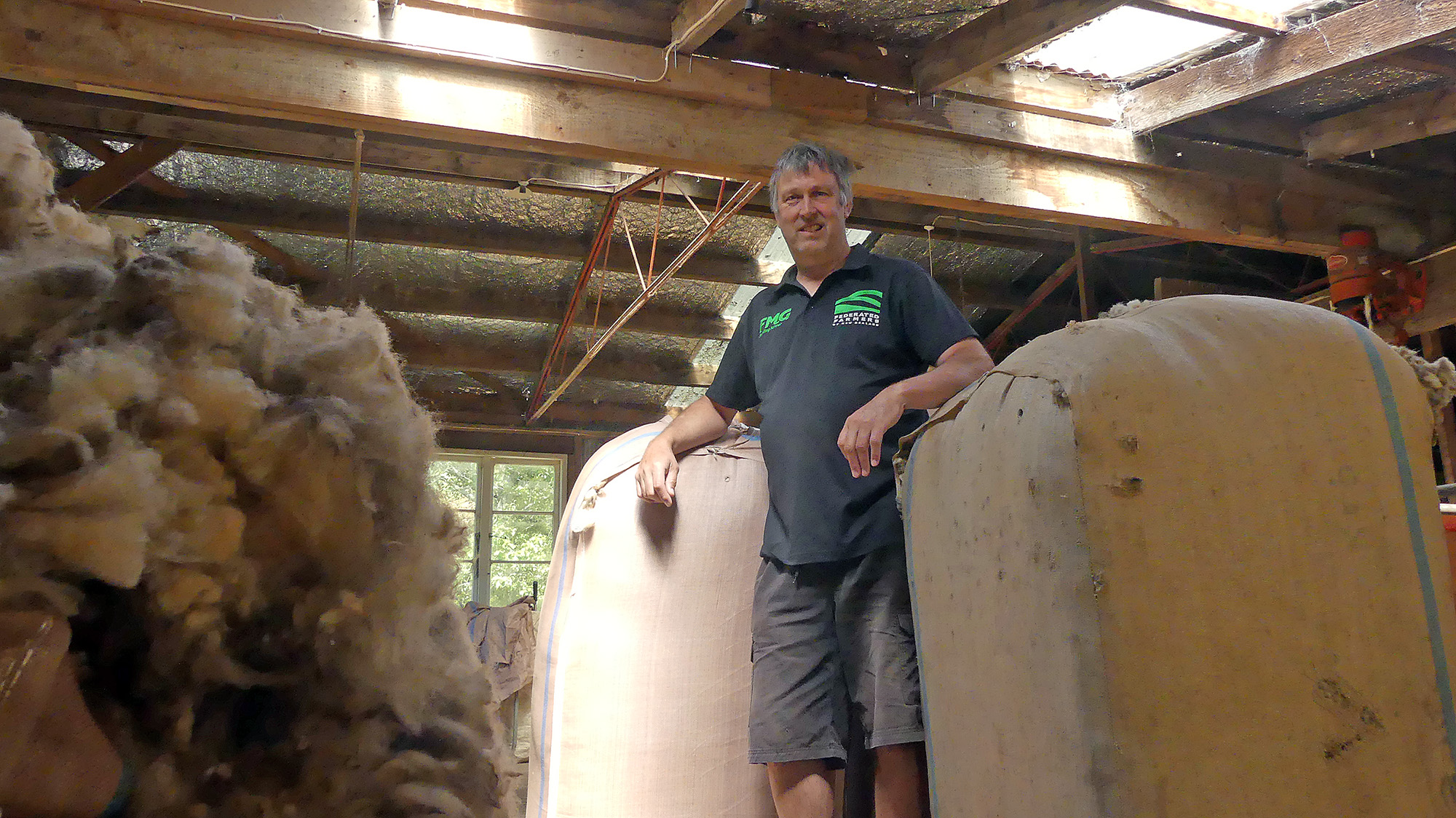Shearing for welfare

GOOD WORK: Bay of Plenty Federated Farmers president Brent Mountfort says the reason for shearing sheep is animal welfare – and he’s invested $3000 in the exercise. Photos Sven Carlsson E5186-01
Martin Johnson
For Manawahe farmer Brent Mountfort, summer shearing of his 1500-strong flock is an animal welfare operation, not a money-making venture.
In fact, the Bay of Plenty Federated Farmers president said recent shearing of his 800 ewes and 750 lambs would put him in the red.
“I’ll be paying $6000 for the shearing and I’ll get $3000 for the wood,” he said.
“Wool is a great product, but at the moment I am operating at a loss.”
It took about four days to shear the flock, with Mr Mountfort having prepared the sheep beforehand.
“I dagged all the ewes and all the dirty lambs,” he said.
“It makes for a better shearing. I also had to be around to bring the sheep in.”
He said it would take him “forever” to shear the sheep himself; shearing was a young person’s job and required “real technique”.

In the next few days, he will apply fly-strike preventative to the newly-shorn sheep to ensure they are not infested by flies.
His comments come in the wake of People for the Ethical Treatment of Animals Asia-Pacific senior vice-president Jason Baker telling Agriculture Minister Todd McClay that all woolsheds in New Zealand should be kitted out with surveillance cameras because the animal welfare organisation had “uncovered harrowing acts of cruelty on ZQ-certified farms, bringing global attention to systemic abuse in the wool industry in New Zealand”.
Radio New Zealand reported that “investigations have been launched into allegations of animal cruelty on a farm leased by former NBC Today show host Matt Lauer”.
PETA Asia-Pacific said an investigation into 11 farms and shearing sheds which supplied ZQ-certified wool - which claimed to be the “world’s leading ethical wool brand” – revealed workers beating, kicking and stomping on sheep.
Among them was Hunter Valley Station, which Lauer bought the lease for in 2017.
“Farm workers at a property owned by former NBC host Matt Lauer stepped on a thrashing sheep’s neck, dragged sheep across the floor, sewed up a sheep’s bloody wound without any painkillers, and other atrocities,” PETA alleged.
The Ministry for Primary Industries has confirmed it is investigating PETA’s allegations.
Federated Farmers meat and wool chairman Toby Williams said installing cameras in every woolshed in the country would be complete overreach and a disproportionate and extreme response to some isolated examples of poor practice.
“It would also be incredibly expensive and impractical given we have tens of thousands of woolsheds scattered across rural New Zealand with over 25 million sheep shorn each year,” he said.
“I don’t think PETA have really thought this idea through properly. Who would pay for the installation and maintenance of the cameras? And what is the problem they’re trying to solve?”
Mr Williams said PETA was trying to make out that New Zealand sheep farmers had an animal welfare issue, “but that couldn’t be further from the truth”.
“New Zealand farmers have very high animal welfare standards, our shearers are world class, and we take the responsibility of caring for our animals seriously,” he said.
Mr Mountfort said back in the 1980s, farmers were making money from wool, but, unfortunately, poor returns from the wool and high shearing costs meant sheep farmers were now making a loss on the wool.
“Back in those days, the meat was a byproduct,” he said.
“It’s been a sad decline – wool is a magic product.”
He said the people who produced nylon carpet had done a good job of discrediting wool.
“We end up with a lot of plastics and microplastics,” Mr Mountfort said.
Landfills across the world were littered with disused nylon-based carpets, which would take centuries to break down, leaching chemicals as they went.
“The wool industry needs a profitable return and sheep are good for the country,” Mr Mountfort said.
“If we increase the number of sheep, it will bring down the cost of meat.”
He said it was “ironic” to have an organisation such as PETA “going on about animal welfare when the whole reason we shear is animal welfare”.
“There’s no excuse for anyone to mistreat any animal,” Mr Mountfort said.
